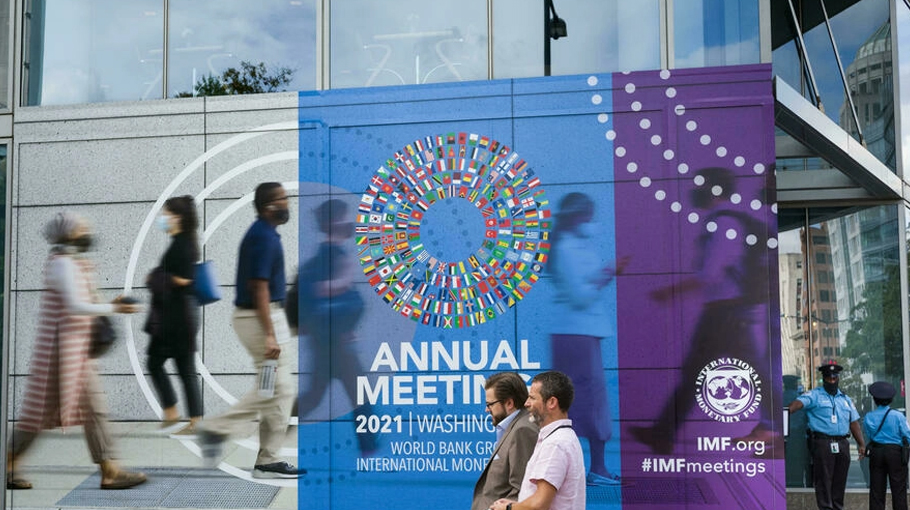Quicker vaccinations key to pandemic recovery: IMF

Accelerating the pace of vaccinations worldwide will be key not just to containing the coronavirus pandemic, but also to resolving the speed bumps besetting the global economic recovery, IMF chief Kristalina Georgieva said Thursday.
Finance officials gathered for the annual meeting of the Washington-based crisis lender have flagged concerns about supply chain bottlenecks that are pushing prices higher.
Those disruptions stem from the unprecedented situation created by the pandemic and the sharp rebound in demand as economies reopen, as well as struggles to hire workers amid renewed infections from the Delta variant of the coronavirus.
But Georgieva said the "more fundamental problem" is the growing divergence between "countries that are pulling forward more strongly, and those that are falling behind," largely due to the drastically lower vaccination rates in lower-income nations.
"There was a very clear message coming out of this meeting that vaccinating the world is critical," she told reporters. While advanced countries are starting to provide booster shots, about 96 percent of the population of low-income countries are unvaccinated.
International Monetary Fund members "called for a strong international cooperation and immediate action to achieve universal vaccination," said Sweden Finance Minister Magdalena Andersson, who chaired the IMF's steering committee.
Georgieva repeated the Fund's view that inflation pressures are mostly transitory, but the committee stressed that central banks will be watching prices closely and will take action if "concrete" risks materialize.
The committee, in its concluding statement, recognized the risks to the recovery and highlighted the need for "immediate action" on vaccinations and to address the crisis that is exacerbating poverty.
The membership also repeated the pledge to "extend financial assistance to countries in need."
That includes shifting funds from the newly-issued IMF reserves -- $650 billion in special drawing rights -- to countries most in need. Georgieva said her $100 billion goal is "very achievable."




